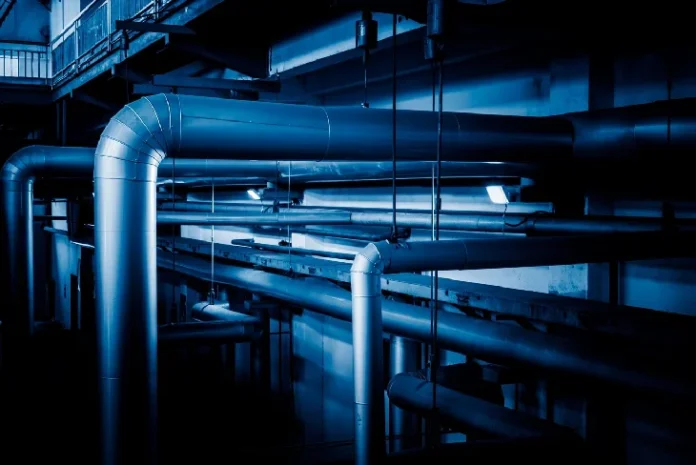Industrial piping engineering is a specialized discipline focusing on designing, analyzing, installing, and maintaining piping systems that transport fluids and gases within industrial facilities.
These systems are integral to various sectors, including oil and gas, petrochemicals, pharmaceuticals, and power generation, ensuring the efficient and safe conveyance of materials essential for industrial processes. Do you want to know more?
Read further.
Why industrial piping is important?
The significance of industrial piping engineering in project execution cannot be overstated. A well-engineered piping system ensures the seamless flow of materials, directly impacting the productivity and safety of an industrial plant. Proper design and installation minimize the risk of leaks, ruptures, and other failures that could lead to operational downtime, environmental hazards, or safety incidents. Moreover, efficient piping systems contribute to energy conservation by reducing pressure losses and optimizing flow dynamics, thereby supporting sustainability goals.
Piping Engineers are Responsible for Several Important Projects
- Designing piping systems: this involves creating detailed layouts that specify the routing, materials, and components of the piping network, ensuring compliance with industry standards and project requirements.
- Stress analysis: engineers perform stress analysis to evaluate how piping systems respond to various loads, such as internal pressure, temperature changes, and external forces. This analysis is crucial to prevent structural failures and ensure long-term reliability.
- Material selection: choosing appropriate materials that can withstand the operating conditions and the chemical properties of the transported fluids is vital for the durability and safety of the piping system.
- Installation and maintenance oversight: piping engineers oversee the installation process to ensure adherence to design specifications and conduct regular inspections and maintenance to uphold system integrity over time.
The complexity of modern industrial projects demands a multidisciplinary approach, where piping engineering integrates with other engineering fields to achieve cohesive and efficient designs. Advancements in technology, such as 3D modeling and simulation software, have enhanced the precision and efficiency of piping design and analysis, allowing for better visualization and optimization of piping layouts before actual construction.

Conclusion
Industrial piping engineering is a cornerstone of industrial project development, playing a pivotal role in ensuring operational efficiency, safety, and sustainability. The expertise of piping engineers in designing and maintaining robust piping systems is essential for the successful execution and longevity of industrial facilities.
